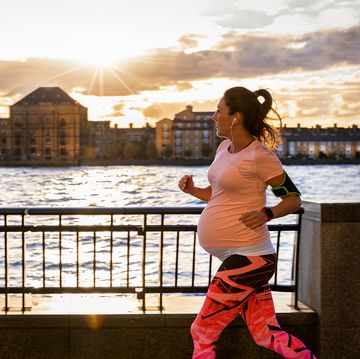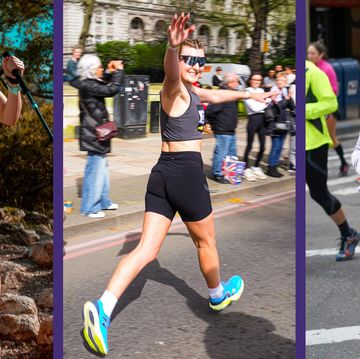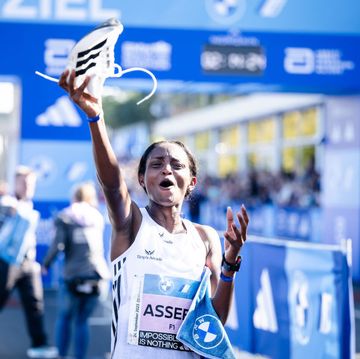Fact: Men are faster than women. Yet research suggests that women’s physiology may render them superior when it comes to endurance. Women burn through carbs more slowly than men, thus potentially delay, or avoid hitting the wall.
London Marathon data shows women are better at pacing than men
According to London Marathon data from Strava, the social network for athletes, women are significantly better than men at pacing.
Strava analysed the data from over 10,000 runners who completed the 2017 London Marathon. They compared the pace at which runners completed the first half of the marathon to the pace of the second half and found that, on average, women only slowed by 11%, whilst men slowed by 17%.
This suggests in general, women race smarter, maintaining a more consistent pace over the 26.2 miles.
Running and hormone health: What you need to know
It will come as no surprise to seasoned marathon runners, that the mile at which most runners achieve their slowest split, known as ‘hitting the wall’, comes in the second half of the marathon at mile 25. In 2017, when reaching mile 25, on average runners slowed to a pace of 10:20 min/mile, which is over 1 minute 40 seconds slower than mile 7 (the fastest mile of the marathon), which saw an average pace of 8:48 min/mile.
Hardy participation in ultrarunning falls to 30
Perhaps more surprisingly, the Strava data also revealed that women over 60 were the most consistent at pacing, with only a 9% variance in pace.
This could be because the 51-60-year-old age group were the most committed group in training, clocking up the most mileage in the 13 weeks leading up to the marathon. This is compared to 21-30-year olds, who were the least committed.
Gareth Mills, UK Country Manager at Strava said: “Women are simply smarter pacers and more astute marathoners than men, The data we have from 25% of last year’s marathon finishers proves it.
“The other stand out demographic were the over 60s. They put in significantly more miles in training which in turn translates to more consistent paces come race day.”
Researchers at the University of Dayton also looked into the difference between men and women when it came to marathon running and analysed date from the 2007 and 2009 Chicago Marathon. Overall, they found men slowed down more than women in the final miles of both marathons, leading researchers to also conclude that, in general, women are better at marathon pacing than men.
Another theory the researchers had was that women would be better able to dissipate heat. Hot temperatures in Chicago in 2007 led to an average drop in pace of 9 percent, according to the study. But when calculated by gender, women fared better. “Women’s superiority in pacing over men increased from cold to the hot racing conditions,” the authors write. This is likely, they say, because women have a greater body surface are relative to mass than men, which allows more heat to escape through the skin.













